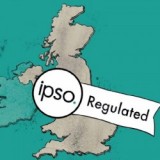 A man who publicly revealed his own name and address has had his complaint about a regional news website publishing the details rejected by the press watchdog.
A man who publicly revealed his own name and address has had his complaint about a regional news website publishing the details rejected by the press watchdog.
Keith Faulkner published the name of the street on which he lives on social media, using his own name, but then objected to Lancs Live’s use of the same details in a story.
The story’s publication prompted Mr Faulkner to complain to the Independent Press Standards Organisation, claiming the Reach plc-owned site had intruded into his privacy.
But the watchdog found he did not have a reasonable expectation of privacy because he had already posted the information on Twitter.
Mr Faulkner claimed Lancs Live had breached Clause 2 (Privacy) and Clause 14 (Confidential sources) of the Editors’ Code of Practice in his complaint to IPSO.
He said he had been contacted by a reporter from the Bamber Bridge-based site after he had tweeted the police about antisocial behaviour on his road.
Mr Faulkner then had a conversation with the reporter via direct message, in which he expanded upon his concerns about the anti-social behaviour and his complaints to the police and council.
Extracts from this conversation were then published in the subsequent story, but Mr Faulkner said the reporter did not make clear that some of his comments would be included and did not ask for his permission to publish them.
Mr Faulkner further claimed naming him in relation to his comments and reporting that he was a resident of the road constituted an intrusion into his privacy because his conversation with the reporter was private, adding he feared he would be the subject of reprisals now that his name had been identified alongside his concerns about the anti-social behaviour.
Denying a breach of Code, Lancs Live said Mr Faulkner had already publicly identified himself as being concerned about anti-social behaviour on his road by tweeting the local police and council under his own name and naming his road in his tweet.
The site said the reporter made clear that she was writing an article by asking whether she could use Mr Faulkner’s photograph “in my piece”, adding it was generally the case that if a reporter identified themselves as such, then any subsequent conversation could be used as information for a story unless the interviewee made clear that they wished to remain anonymous or the information they provided was off the record.
Nevertheless, on receipt of the complaint it removed Mr Faulkner’s name from the story.
IPSO found Mr Faulkner had already disclosed on Twitter, using his own name, that he had made the complaints about the named road.
It also considered that the messages between himself and the reporter did not amount to private correspondence because he had made clear was happy to make these comments to someone who had identified herself as a journalist and had made clear that she was writing a story.
The complaint was not upheld, and the full adjudication can be read here.

 Follow HTFP on Twitter
Follow HTFP on Twitter